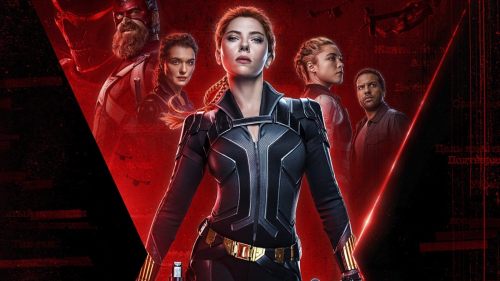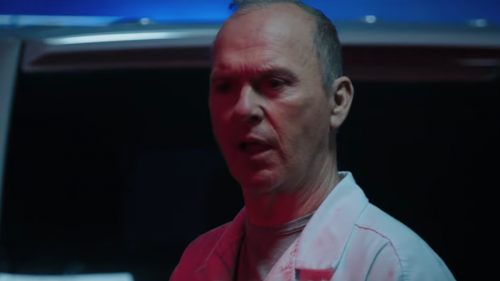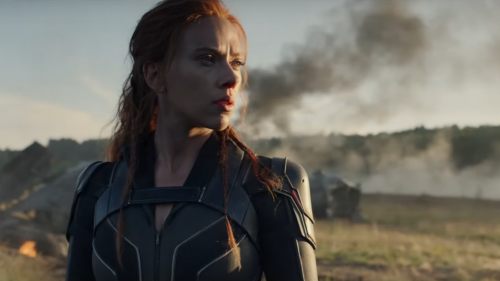Where Does The MCU Go From Here?
***Warning: Spoilers For Infinity War Ahoy***
The Avengers eventually had to lose and – if fans were going to guess who would hand them their first defeat – Thanos (Josh Brolin) seemed like the safe bet. Yet once Marvel fans were proven right, and Infinity War delivered its portentous act of random genocide (thus ensuring the "balance" this purple titan sought for the universe), we were all left to wonder: where the hell does the MCU go from here? As Thanos smiles and stares out over a sunrise, at peace with his devastating decision to commit mass slaughter in order to prevent the galaxy's resources from being used up via overpopulation, it's difficult not to wonder how Marvel would resurrect some of these characters, not to mention have them battle back against the despotic conqueror.
Let's get this out of the way up front: despite my own intense affection for Infinity War's grim finale, even I had to admit to myself there was no way all those deaths were going to stick. The minute you see T'Challa (Chadwick Boseman) vanish, this is abundantly clear. Unless Marvel wants to undo one of the greatest cultural cornerstones of their franchise, Black Panther is certainly coming back. I'd imagine the same to be true about many of the vanquished Guardians – particularly Peter Quill (Chris Pratt), Drax (Dave Bautista), and Groot (Vin Diesel) – who disappeared in a wave of intergalactic ash. Same goes for Peter Parker (Tom Holland), who not only has a Homecoming sequel scheduled for 2019 (July 4th weekend, no less), but actually has the greatest change occur within the text of Infinity War. You don't just anoint the kid an Avenger, only to kill him off. That’s rude.
More than likely, they're going to be resurrected either via the Time Stone – which Thanos used to rewind history so that he could remove the Mind Stone from Vision's (Paul Bettany) head – or the Soul Stone. The remaining Avengers (more than likely led by an ailing Tony Stark [Robert Downey Jr.] and Captain America [Chris Evans]) could take a last stand against Thanos, defeat him, and then reverse the events of the last film. Given that so much of Infinity War focuses on the Time Stone’s keeper, Doctor Strange (Benedict Cumberbatch) – going as far as to have him view 14 million future outcomes (in which the Avengers only win one) – and then hand the stone over to Thanos, this path seems like a pretty sure thing. To be honest, it's also the lamest possible solution from a storytelling standpoint, as Thanos' Infinity Gauntlet (which was badly damaged during the Wakanda battle, so it may not even be possible) becomes a sort of deus ex machina, lessening the emotional impact of Infinity War on repeat viewings.
There's another possible outcome that involves the Soul Stone. When Thanos and Gamora (Zoe Saldana) travel to Vormir, Red Skull (Ross Marquand) informs them that the stone can only be retrieved if Thanos sacrifices whatever he loves the most. This leads to him tossing Gamora over the cliff, thus inheriting the Soul Stone's powers. What's slightly confusing about this scene is that it posits the Soul Stone as a consuming entity, desiring essentially to be satiated before it can be claimed. There's a theory that when Thanos enacts his genocide, the creatures he kills don't actually pass on to the great beyond, but are instead trapped inside the Soul Stone itself. Thus, the Avengers would probably have to destroy that stone to unleash the souls Thanos stole. Whether or not this is true is based entirely on the mechanics of the Soul Stone, of which our understanding is tenuous at best.
But what if neither of those strategies are involved? What if the Avengers' victory hinges around a character we haven't yet seen? Enter Adam Warlock and the Infinity Watch. As the comics tell it:
Eons ago, the virtually omnipotent Nemesis tired of life and scattered her essence into several gems, each bearing power over one aspect of existence. The Infinity Gems were coveted by some, feared by all. Having previously tapped their power in a plot to obliterate the stars, Thanos of Titan eventually accessed the full power of six gems, forming the Infinity Gauntlet to gain practical omnipotence. Adam Warlock wrested the Gauntlet from Thanos, using it to expel his own good and evil aspects, but the Living Tribunal and other cosmic beings found him unworthy of the power. Warlock retained the Soul Gem and dispersed the others to chosen protectors: the Time Gem to his sometime lover, Gamora; the Space Gem to Pip the Troll; the Power Gem to Drax the Destroyer; the Mind Gem to Moondragon; and the Reality Gem to Thanos, inexplicably chosen during Warlock's seeming omniscience, his involvement remaining secret.
Now, it would be a long shot that Marvel would simply introduce a character, just to have him bail the Avengers out (how pissed off would we all be about that?), but Warlock is teased at the end of Guardians Vol. 2, so technically anything is possible. Plus, they did something similar when launching Vision during Age of Ultron’s major conflict, only to have him become a prominent player from that point forward, so there’s definitely precedent.
While we're on the subject of the comics, it might be good to take a look at Jim Starlin’s ‘91 story The Infinity Gauntlet, which helped shape the narrative of the Russo Bros' Infinity War. Just like the film, at the book’s midpoint, Thanos has defeated the majority of the Avengers, and thinks he’s completely invincible. Again, with the help of Adam Warlock, the Avengers mount another attack, but are crushed. Instead, the real threat to Thanos comes from Gamora's sister, Nebula (Karen Gillan), who Thanos has tortured within an inch of her life, thus instilling in her a desire for revenge.
Rewind a few films for a second. We already know that Gamora and Nebula once hated each other, thanks to the Guardians movies. As children, the sisters were trained as assassins, squaring off against one another, and each time Gamora won, a part of Nebula’s flesh was stripped from her body. Thanos exploits this past in Infinity War by twisting the now mostly robotic Nebula into pretzels of inconceivable pain, making Gamora give up the location of the Soul Stone. Though Thanos sacrifices Gamora to receive the stone, he's still left one sister behind, frail and ostensibly useless to him.
In the comics, Thanos defies the Avengers' claim that he will "never be a God", letting go of his physical form and fundamentally becoming the center of all reality. But without his body, he can no longer wear the Gauntlet. Nebula escapes from her shackles, steals the gold glove, and reverses all the damage her father’s done. Seeing how Nebula is still alive at the end of Infinity War, you could combine this knowledge with her storyline from The Infinity Gauntlet to guess as to how her role in the Russo Bros' second Avengers movie (slated for May 2019) plays out. It would also provide a fitting close to the arc she shares with Gamora, transcending the pain their papa put them through (which is a running theme in these MCU movies) to avenge her sibling and finally be at peace with her own trauma.
However, we must not discount the appearance of Captain Marvel's symbol during Infinity War’s post-credits tag. Just as Nick Fury (Samuel L. Jackson) is about to evaporate with the rest of Thanos' victims, he sends out a distress signal – the logo for our as of yet unseen space cop – which doubles as the movie's final image. Seeing how Ryan Fleck and Anna Boden's Captain Marvel hits theaters two months before the next Avengers movie, it’s safe to assume Brie Larson's iteration of the character is going to be dealing with quite a bit of fallout from Thanos' destruction, before chipping in with our favorite lot of recovering heroes.
In the end, the most intriguing element of Infinity War's cosmic calamities isn't how everything is resolved, but rather what emotional toll these events take on our heroes. Thor just witnessed Loki’s (Tom Hiddleston) savage execution. Spider-Boy will now truly be a Spider-Man, as Tom Holland's version of the character will have survived not just a brush with death, but the afterlife itself. King T’Challa will have to wrestle with the notion that once he opened the gates of Wakanda to outsiders, a full-scale war broke out. Plus, there’s Hulk (Mark Ruffalo), who’s already so damaged the big green guy refused to come out during Thanos’ massacre, forcing Banner to don the Hulk Buster armor in his stead. The happiest outcome to consider is that, if Tony survives the next Avengers film, we might see an epilogue that sends him off into the sunset with Pepper Potts (Gwyneth Paltrow) following their wedding (acting as the second instance he's hung up the red and gold armor after Iron Man 3).
Meanwhile, Chris Evans has promised that he's essentially done with the MCU after 2019, so Cap's demise may be the big, final death that leaves us all in tears come May of next year. Gamora will probably not show up in Guardians Vol. 3 (reportedly set for 2020), as Saldana will be busy shooting James Cameron's 70 Avatar sequels. And who the fuck knows what Hawkeye (Jeremy Renner) is thinking while watching news broadcasts from his farm, his kids wanting another bowl of cereal while he reaches for the bow and arrow. The possibilities are endless. Yet just like the first Avengers saw an attack on NYC changing the entire universe as we knew it, it’s safe to say nothing will be the same in the MCU following Infinity War. We basically have one story to go (as Peyton Reed's upcoming Ant Man and the Wasp occurs before Thanos' attack) before heading into Marvel's somewhat uncharted future, and it’s kind of exciting. The reset button has been pushed, and all outcomes are open for us to consider.



